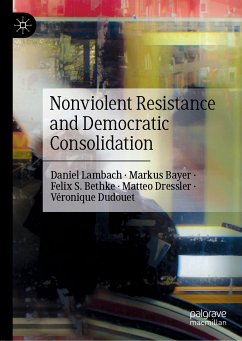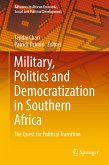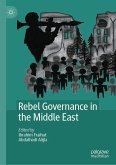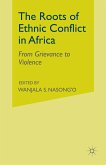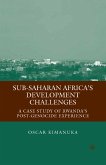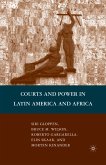'At a time when authoritarianism is resurgent and democracy is under threat globally, this timely book shines a light on a critical but underappreciated driver
of democratization: ordinary citizens.'
-Maria J. Stephan, Director, Program on Nonviolent Action, USIP, USA.
'This insightful book is essential reading for all interested in democratization in the aftermath of conflict and how mobilization can affect how institutions
evolve.'-Kristian Skrede Gleditsch, Professor, University of Essex, UK.
'This is an essential contribution to a fascinating interdisciplinary field which shows that unarmed resistance movements facilitate the emergence of democracy.'
- Stellan Vinthagen, Chair and Professor of Sociology, University of Massachusetts, Amherst, USA.
This book argues that democracies emerging from peaceful protest last longer, achieve higher levels ofdemocratic quality, and are more likely to see at least two peaceful handovers of power than democracies that emerged out of violent resistance or top-down liberalization. Nonviolent resistance is not just an effective means of deposing dictators; it can also help consolidate democracy after the transition from autocratic rule. Drawing on case studies on democratic consolidation in Africa and Latin America, the authors find that nonviolent resistance creates a more inclusive transition process that is more resistant to democratic breakdown in the long term.
Daniel Lambach is Postdoctoral Research Fellow at Goethe University, Germany.
Markus Bayer is Research Fellow at University of Duisburg-Essen, Germany.
Felix S. Bethke is Senior Researcher at the Peace Research Institute Frankfurt, Germany.
Matteo Dressler is Researcher at the Flemish Peace Institute, Belgium.
Véronique Dudouet is Programme Director at Berghof Foundation, Germany.
Dieser Download kann aus rechtlichen Gründen nur mit Rechnungsadresse in A, B, BG, CY, CZ, D, DK, EW, E, FIN, F, GR, HR, H, IRL, I, LT, L, LR, M, NL, PL, P, R, S, SLO, SK ausgeliefert werden.
Es gelten unsere Allgemeinen Geschäftsbedingungen: www.buecher.de/agb
Impressum
www.buecher.de ist ein Internetauftritt der buecher.de internetstores GmbH
Geschäftsführung: Monica Sawhney | Roland Kölbl | Günter Hilger
Sitz der Gesellschaft: Batheyer Straße 115 - 117, 58099 Hagen
Postanschrift: Bürgermeister-Wegele-Str. 12, 86167 Augsburg
Amtsgericht Hagen HRB 13257
Steuernummer: 321/5800/1497
USt-IdNr: DE450055826
Bitte wählen Sie Ihr Anliegen aus.
Rechnungen
Retourenschein anfordern
Bestellstatus
Storno

